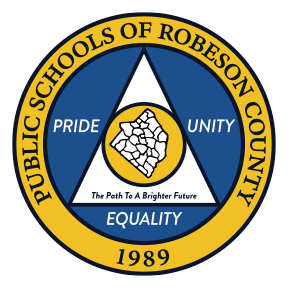A new grant will change how students across the Public Schools of Robeson County learn about art and interact with artificial intelligence to express themselves through the art curriculum.
Project FRACTAL: Furthering Rural Adoption of Computers and Technology through Artistic Lessons is a grant funded through the Education Innovation and Research Program of the U.S. Department of Education.
WestEd, Katabasis, Empirical Education Inc. (Empirical), and Bertie, Granville, Jones, and Robeson County Public Schools in North Carolina have partnered to propose the grant project “to enhance, extend, and experimentally test an innovative intervention to improve access to and interest in computer science (CS) among high-needs rural students,” as stated on the grant application.
“This grant is for $4 million over 5 years and will fund the codesign and curriculum research, the evaluation and pilot study, and the teacher stipends of participating teachers. Every teacher who participates will receive a $500 stipend every six months they participate in this grant,” said Bill Causey, president of Katabasis Inc.
Through the project, PSRC will work alongside Katabasis to develop a high-quality Computer Science and Science, Technology, Engineering, Art, and Math (STEAM) curriculum for middle school students using the Universal Design for Learning (UDL) framework.
“This was a highly competitive federal grant call with numerous universities and educational research organizations submitting proposals to the Department of Education, and we are thrilled to have been selected as one of the projects to receive funding,” Causey said.
“We will recruit CTE and art teachers in our middle schools to develop lessons using artificial intelligence in art. Materials will be provided to teachers along with professional development and teachers will utilize the lessons in their classrooms,” said Susan Miller-Hendrix, PSRC’s Science Supervisor.
In the first three years of the project, four ‘expeditions’ will be developed to introduce students to digital art and AI-generated art.
Each expedition will last one week and build students' confidence in utilizing technology, particularly artificial intelligence, to express themselves and positively shape their environment. Students will be exposed to careers in the fields of computer science and artificial intelligence.
“We will be working with middle school teachers in the STEAM subjects, with a heavy emphasis on collaborating with art and technology teachers,” Causey said.
“This will consist of our team meeting with these teachers three to five times every six months to codesign the lesson for the first three years of the grant. In year four and part of year five, we will then conduct a small-scale pilot evaluation of the expeditions,” he said.
“They will also hold summer camps for our students where each student will build their own computers to take home with them,” Miller-Hendrix said.
The district is grateful to be a part of the project, said PSRC Superintendent Dr. Freddie Williamson.
“This is an incredible opportunity and we are grateful to be involved in this effort. I am certain that Project FRACTAL will help prepare our students for the future and assist them in obtaining skills needed to thrive in an ever-changing global society,” Williamson said.
